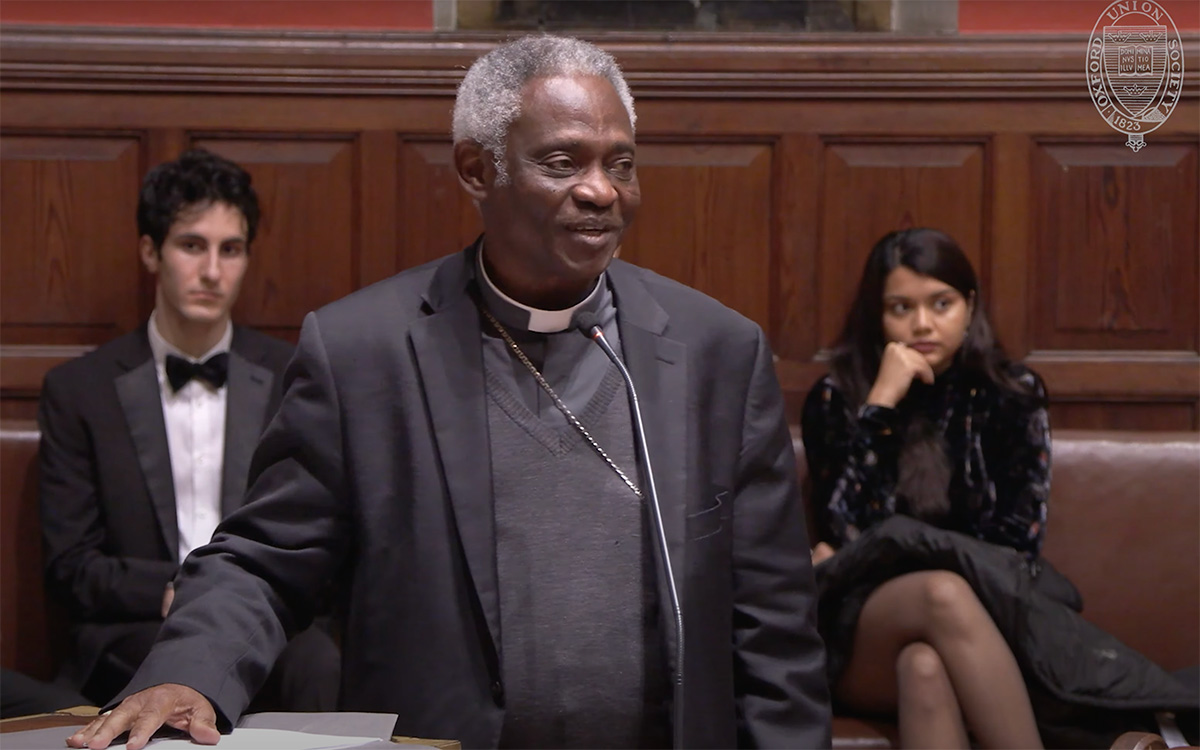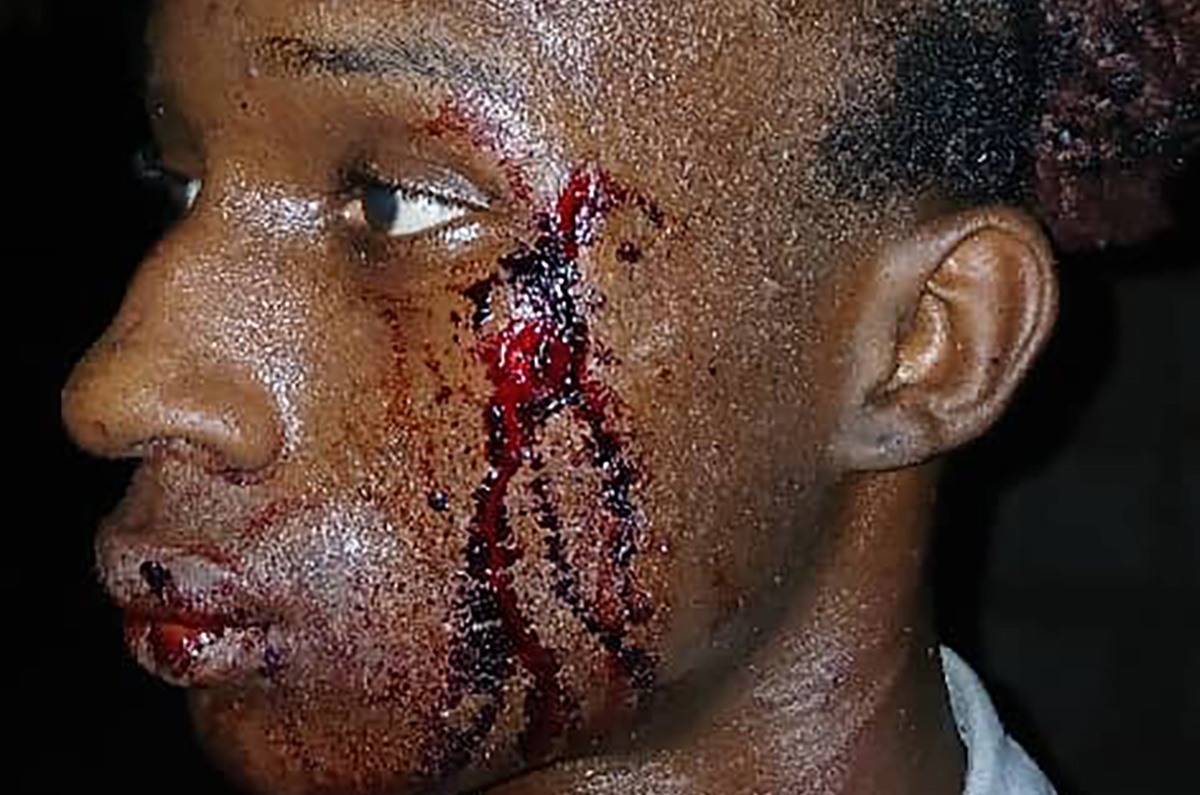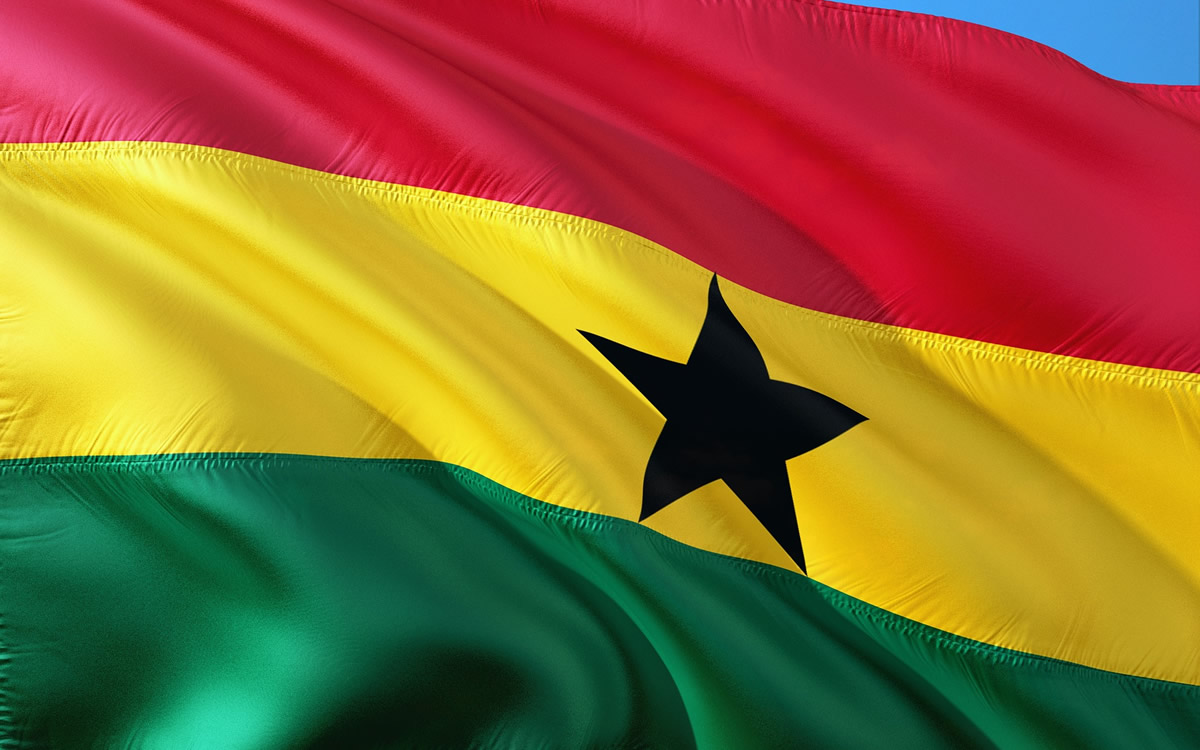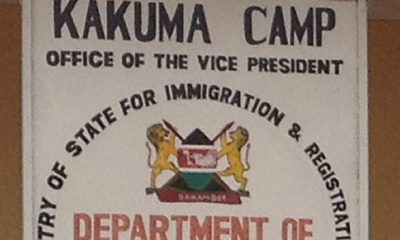Ghana
Ghanaian cardinal reiterates support of LGBTQ people
Country’s Supreme Court considering challenge of anti-LGBTQ law

A Catholic cardinal in Ghana has reiterated his support for LGBTQ people.
Peter Turkson has been vocal against the criminalization of LGBTQ people, advocates, and organizations. He is also among the few African cardinals who have supported the Fiducia Supplicans (Supplicating Trust) document that Pope Francis released last year.
The document offers a narrow set of conditions under which a priest or deacon can offer a blessing to a same-sex couple or unmarried heterosexual couples.
In an interview with TV3 News, a Ghanaian television station, Turkson expressed his grave concerns over the Human Sexual Rights and Family Values Bill currently before the Supreme Court.
The bill, among other things, would further criminalize LGBTQ people and make advocacy on their behalf illegal.
Lawmakers in February approved the measure. President Nana Akufo-Addo has said he will not sign it until the Supreme Court issues its ruling.
Turkson said homosexuality is not new to Ghanaian culture and those who identify as LGBTQ should be treated like any other person.
“Who controls how one is born? And if one is born this way, how does it in itself constitute a crime? You criminalize them for what,” he asked.
Turkson also said there should be respect for diverse views, urging against the criminalization of identity.
Father Peter Knox from the Jesuit Institute in South Africa said there is an almost what he described as a neurotic denial of the fact there are African people who are attracted to people of the same sex.
“The fact that people of the same sex enter into a permanent, loving, supportive, stable, fruitful relationships is beyond the imagination of many Africans. The very notion runs contrary to what many theologians and pastors claim is African culture,” said Knox.
Knox also questioned why homosexuality is regarded as a Western concept, noting South Africa offers asylum to many LGBTQ Africans who are fleeing persecution from their countries of origin.
“For decades South Africa has recognized the refugee status of people who are persecuted or whose lives are endangered because of their sexual orientation,” he noted. “For those who do not try to make it to Europe, South Africa is often a second-best destination.”
Knox noted one South African parish has a support group for LGBTQ parishioners.
“It is noteworthy that none of the members of the group are so-called Europeans. They all come from African countries,” he said. “One also hopes for more prophetic protection of a severely marginalized group on this continent.”
Cardinal Maurice Piat of Mauritius, along with Turkson, is the only other of the continent’s 22 Catholic cardinals who has spoken publicly in support of LGBTQ people. Non-Catholic officials in Africa have largely dismissed Francis’s document.
Cardinal Stephen Ameyu, archbishop of Juba in South Sudan, has said the church’s role is to respond to sinners with mercy. He questioned the blessings of same-sex marriages last December during a press conference at a Christmas event.
“The church takes mercy first. That’s why sometimes we are concerned about people who are criminals, people who have killed people. We turn to them in mercy,” said Ameyu. “So, the state of life that somebody lives does not exclude one from the concern of the church. Be merciful to others provide services to others who need the services, and the church can do a lot in order to convince people in their state of sins to come back to the church and be converted.”
Francis in 2023 visited South Sudan and the Democratic Republic of Congo.

Ghana
LGBTQ people, allies targeted in Ghanaian cities
Man attacked intersex, trans woman who refused his advances

LGBTQ people and allies have been attacked in the Ghanaian cities of Tamale and Wa.
Yeliminga Naa Abayema, a journalist with Wa-based Tungsung Radio, last month while on the air said he was going to deal with the LGBTQ community and called on local law enforcement and officials to help him.
Rightify Ghana, a local LGBTQ organization, said Abayema’s remarks are in response to human rights activists who had helped two queer people evade anti-gay attacks.
The chief of Kpalsi Palace in the Sagnarigu municipal district tracked down one of the activists, beat him, fined him $300 and a sheep. The activist was also banished from the area.
The second activist had a written death threat attached to the front door of his apartment, warning him to stop protecting LGBTQ people. The threat forced him to flee the area.
Rightify Ghana on May 27 issued a statement that condemned the attacks.
“From physical attacks, eviction, and death threats to media-led defamation and economic sabotage, these defenders are being punished for standing up against hate,” reads the statement. “In Tamale, two defenders are now homeless, one was beaten, fined, and banished, the other received a death threat. In Wa, a journalist led a public campaign naming and shaming queer individuals, resulting in threats and business losses.”
Rightify Ghana also said the attacks are silencing voices and crippling community support. The group noted the two activists are in urgent need of protection, legal support, relocation assistance, medical and psychological care.
Yaw Mensah, a Ghanaian LGBTQ activist, said some law enforcement officials were exacerbating the homophobic attacks through arbitrary arrests and supporting the perpetrators.
“The saddest thing in this, is that they can’t even rely on the police for protection because some of the police officers are part of the problem as they are helping persecute LGBT people and their supporters,” said Mensah.
Awo Dufiean, a Ghanaian intersex and transgender woman, in April said a man left her with bruises on her cheek and arms after she refused his advances.
“Why is there such an extreme push to enforce heteropatriachy and heteronormativity through laws and policies and who does it benefit? Why are we developing such an insatiable appetite to use culture to harm and disenfranchise so many people simply because they are different? I have argued and will argue that we need to critically start examining our position as West Africans on what we are doing to queer people,” said Dufiean.
Meanwhile, the Promotion of Proper Human Sexual Rights and Ghanaian Family Values Bill that would further criminalize LGBTQ people and outlaw allyship is back in parliament.
Parliament Speaker Alban Bagbin on May 27 said the anti-LGBTQ bill can now be tabled for its first reading after having completed all necessary processes.
The Ghanaian penal code criminalizes consensual same-sex sexual activity and carries a maximum penalty of three years in prison.
Anyone convicted of forming or funding LGBTQ groups under the Promotion of Proper Human Sexual Rights and Ghanaian Family Values Bill would face fines and up to five years in prison. Those convicted of participating in LGBTQ rights campaigns aimed at children would face up to 10 years in prison.

Ghanaian MPs have reintroduced a bill that would, among other things, criminalize LGBTQ allyship.
According to Rev. John Ntim Fordjour, an MP for Assin South who spoke to Citi Newsroom on Feb. 27, he and other MPs last month reintroduced the Promotion of Proper Human Sexual Rights and Ghanaian Family Values Bill.
Fordjour said he expects lawmakers will expedite its passage since MPs passed it last year. Former President Nana Akufo-Addo didn’t sign the bill into law.
Amanda Odoi and Richard Sky in May 2024 challenged the measure in court. Supreme Court Justice Avril Lovelace-Johnson dismissed the lawsuits last Dec. 18, a week before John Mahama of the opposition National Democratic Congress won the country’s presidential election.
Mahama after the new parliament’s inauguration on Jan. 7 signaled the bill’s indefinite halt when he spoke at the Ghana Catholic Bishop’s Conference, noting it was not necessary to preserve family values. Mahama, however, during a meeting with clergy at the Accra International Conference Center on Feb. 28 said there are only two genders, adding marriage should be between a man and a woman.
Mahama also said he would speak with Parliament Speaker Alban Bagbin about reintroducing the bill through the government as opposed to a private member’s bill.
“President John Mahama is re-echoing Donald Trump’s hateful rhetorics,” said Activism Ghana, a Ghanaian advocacy group. “Saying that there are only two genders is a hate speech, as it poses harm to intersex, transgender, and nonbinary persons.”
LGBT+ Rights Ghana, another local advocacy group, said Mahama’s comments were aimed at bridging the country’s political divide, noting several political leaders ahead of the election promised to reintroduce the bill.
“This move is an obvious execution of the campaign promise made during the recent election, pushed by homophobic politicians and religious groups as means to promote oppression against queer people in Ghana,” said LGBT+ Rights Ghana.
Activist Yaw Mensah said all people should be treated equally, regardless of their sexual orientation, while noting people who identify as LGBTQ should be seen as natural and normal.
“Mahama should learn from the president of South Africa, LGBTQ Ghanaians are not the curse of this country,” said Mensah. “Being gay is natural and normal. I am hopeful that one day, Uganda, Ghana, and the rest of Africa will be free of the chronic and retrogressive homophobia that we are witnessing today.”
The bill was first introduced in parliament in June 2021.
It recommends a maximum five-year prison sentence for those who form or fund LGBTQ groups and up to 10 years for anyone involved in LGBTQ advocacy campaigns aimed at children.
Ghana’s penal code currently bans consensual same-sex sexual activity, noting anyone who commits “acts of unnatural carnal knowledge carrying a maximum penalty of three years imprisonment.” The law, however, only criminalizes men.
Rightify Ghana says there are currently no anti-LGBTQ bills in parliament.
Ghana
Ghana’s president says anti-LGBTQ bill ‘effectively is dead’
Promotion of Proper Human Sexual Rights and Ghanaian Family Values Bill passed in 2024

Advocacy groups in Ghana have welcomed the demise of a bill that would have further criminalized LGBTQ people and outlawed allyship.
President John Mahama on Jan. 14 said the Promotion of Proper Human Sexual Rights and Ghanaian Family Values Bill that MP Sam George of Ningo-Prampram co-sponsored in 2021 was essentially dead. Mahama made the remarks to a delegation of bishops from the Ghana Catholic Bishop’s Conference.
“If we are teaching our values in schools, we wouldn’t need to pass a bill to enforce family values,” said Mahama. “More than just passing the Family Values Bill, we need to agree on a curriculum that instills these values in our children as they grow.”
The president also said that although MPs passed the bill last February, parliament dissolved before former President Nana Akufo-Ado, whose term ended earlier this month, signed it.
“I don’t know what the promoters of the bill intend to do, but I think we should have a conversation about it again,” said Mahama. “As far as I know, the bill did not get to the president. So, the convention is that all bills that are not assented to law before the expiration of the life of parliament, expire. So that bill effectively is dead.”
LGBT+ Rights Ghana Communications Director Berinyuy Burinyuy said the president’s remarks offer a glimmer of hope for LGBTQ Ghanaians who have long been subjected to systemic discrimination, fear, and violence.
“For many, the mere suggestion that LGBT+ issues could be addressed through education rather than criminalization represents a significant departure from the traditional legislative path championed by the bill’s proponents,” said Burinyuy. “This shift implies a possible opening for dialogue and a more inclusive approach, one that recognizes the need for respect and understanding of diverse sexual identities within Ghanaian society.”
Burinyuy, however, asked about how family values will be incorporated into the educational curriculum.
“Will the curriculum provide a comprehensive, nuanced understanding of human sexuality that respects diversity, or will it risk reinforcing discriminatory attitudes under the guise of cultural preservation?” said Burinyuy. “The fear, particularly among LGBT+ activists is that the emphasis on education could inadvertently foster homophobia in Ghanaian children. If the content is not carefully structured, it could perpetuate harmful stereotypes and deepen existing prejudices.”
“While Mahama may not yet be fully committing to a clear policy direction, his statement leaves open the possibility of a more balanced approach, one that allows for a national conversation on sexual rights without rushing into divisive legislation,” added Burinyuy.
We Are All Ghana said Mahama’s comments are a welcomed approach in addressing anti-LGBTQ sentiments and negative stereotyping.
“We need a holistic educational curriculum for our schools,” said We Are All Ghana. “The children at least deserve to know the truth. There is nothing worse than half baked information.”
Yaw Mensah, an LGBTQ activist, said Mahama is teaching Ghanaians to be tolerant of everyone, regardless of their sexual orientation.
“Mahama is indirectly saying LGBT persons are not Ghana’s problems. Let’s teach families values that accept and respect everyone. Ghanaian values should be tolerance, respect, honesty, hardworking, hospitality, and integrity,” said Mensah. “Those need to be taught and not the hate, discrimination, barbarism, greediness, and hypocrisy that we are seeing in many leaders which transcends into the young ones.”
George has yet to comment on Mensah’s comments about his bill.



















